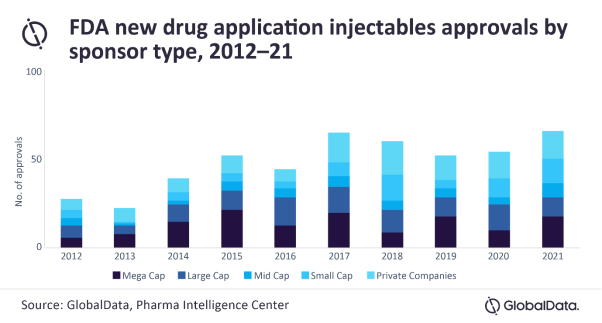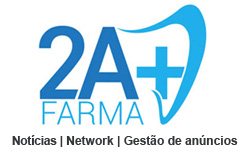Injectable drugs and their packaging requirements are providing ample opportunities for packaging firms to supply big pharmaceutical companies, given the volume of vaccines, including the latest Omicron boosters required to tackle the COVID-19 pandemic, and the rising number of biologics, says GlobalData, a leading data and analytics company.
GlobalData’s report, ‘Contract Injectable Packaging Trends in the Bio/Pharma Industry’, reveals that there was an increase in approvals of injectable drugs from 2020 to 2021. The FDA and EMA generally approve more injectable drugs developed by large (market cap $10–100 billion) and mega cap (market cap >$100 billion) pharma companies than by smaller companies with market caps below $10 billion. Non-injectable approvals tend to have more small and mid cap sponsors as a proportion. This is because injectables – such as vaccines and monoclonal antibodies – are more complex than oral solid dose drugs – such as tablets – and so tend to be developed by larger companies with deeper pockets.
Adam Bradbury, Pharma Analyst at GlobalData, comments: “For injectable drugs, the FDA’s New Drug Application (NDA) approvals were relatively high in 2021 for small cap and mega cap drug sponsors. The number of approved injectable drugs sponsored by small, large, and mega cap companies increased since 2020.”

Bradbury continues: “The trend of small cap approvals increasing is potentially advantageous to contract manufacturing organisations (CMOs), given that historically their clients are more likely to be smaller companies that are unable to invest in their own facilities or enhance their own capabilities.”
The outsourcing propensity (the percentage of approved drugs for which a pharma sponsor company outsources manufacturing) is influenced greatly by the sponsor’s market cap and ability to acquire capabilities to package rather than outsourcing the task to a contractor. Innovative injectable products are more frequently sponsored by large and mega cap pharma companies than non-injectable or generic approvals.
Bradbury concludes: “Certain innovative products like cell and gene therapies have a limited pool of staff and expertise that can engage with their production; large CMOs have been acquiring these capabilities in recent years and, again, large and mega cap sponsors will require these services.”
 2A+ Farma Portal de notícias
2A+ Farma Portal de notícias
